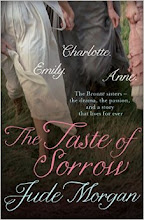I do not allow myself to gorge on Murdoch. I am pacing myself, leaving time between each book I read so that I can fully digest it; to read them one after another might taint them, I might attach a character to the wrong book, they might bleed into each other... No, better to separate and to always know there are more to come.
The Philosopher's Pupil is set in a spa town, enabling Murdoch to indulge her preoccupation with water and drowning metaphors. Inhabitants congregate around the Roman baths and hot mineral springs, and their desires, prejudices, doubts and fears hang over them like the steam over the outdoor pool. Wading through both this figurative and actual fug are various members of the McCaffrey family, an extended mob whose myriad inadequacies are held up by Murdoch to intense moral scrutiny. One of the McCaffreys, George, is obsessed with his old philosophy teacher, a walrus of a man who has returned to his hometown for a short period. It is around this relationship that Murdoch is able to present the philosophical arguments and ponderances for which she is so famous.
This particular book is up there with the best of the Murdochs I have read so far. I absolutely loved it. I'm not sure that it has supplanted The Sea, The Sea as my favourite, but is probably running joint second with The Black Prince.
It has everything a Murdoch connoisseur could want: a middle aged male lead whose over compensation for self-doubt leads him down murderous paths; older men obsessing over younger women and lost passions; pathetic middle aged women who lack the strength to break free of their overbearing husbands; failed academics; hints of the supernatural; and humour, plenty of humour.
It has flaws - does the mysterious narrator, 'N', really add anything to the book? His cryptic ending seems suspended somehow, balanced precariously over the novel rather than being part of it. I also question whether I'm convinced by Tom and Hattie's relationship - but Murdoch's younger characters are rarely as rounded as her older ones. And honestly, despite these minor quibbles, The Philosopher's Pupil is a tour de force, a page turner extraordinaire, a thought-provoking insight into the lives of a disparate group. Does our pleasure as readers come from the fact that we recognise elements of ourselves in these people, or does it come from our delight at realising we are not so damaged as they are?
If you are already a Murdoch fan, The Philosopher's Pupil will enchant you as all her best books do. And if you are new to her oeuvre, this is as good a place to start as any.
Now I must ween myself off her for a while, and give some other poor hapless author a chance to impress. But I might just pop into Waterstones and start thinking about which Murdoch I will read next...just so I'm ready when the time is right, you understand. I can stop any time I like...

